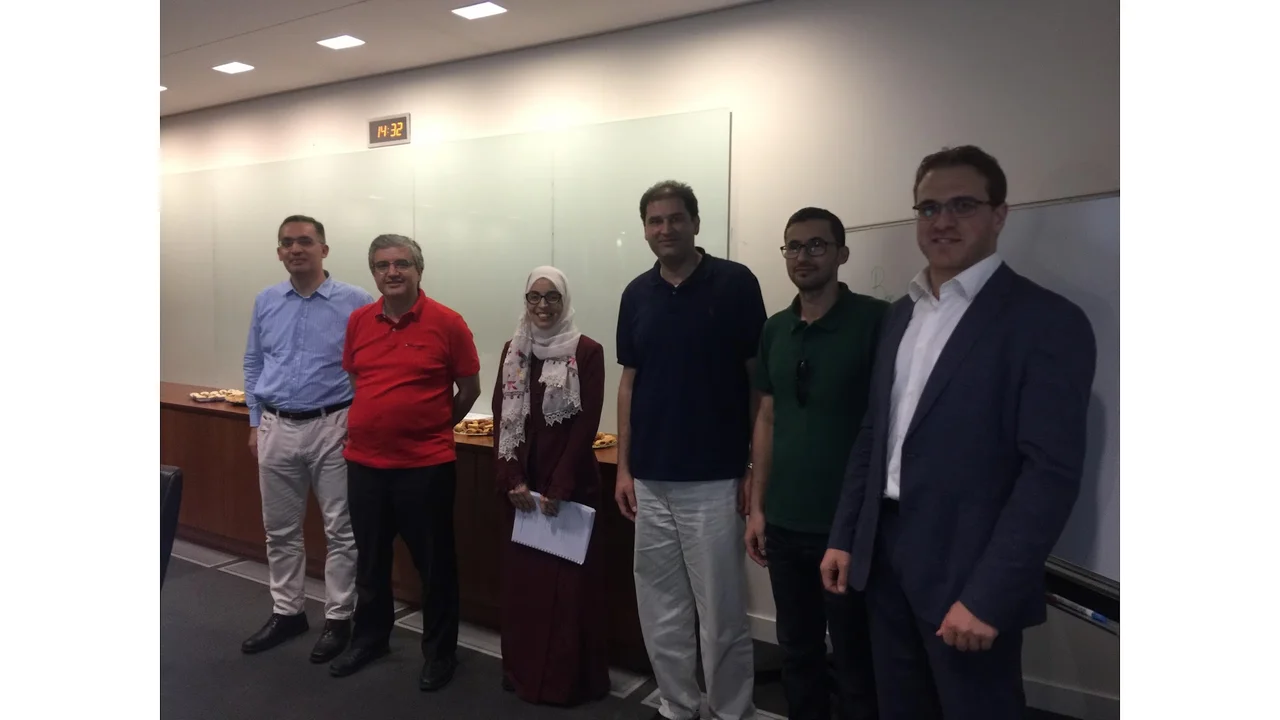About
On November 2nd, 2017, Fatma Benkhelifa successfully defended her Ph.D. thesis on "Towards Perpetual Energy Operation in Wireless Communication Systems" under the supervision of Prof. Mohamed-Slim Alouini.
We congratulate Dr. Benkhelifa for her achievement!
Everyone at CTL wishes her all the best for the future.

Committee Chairperson: Prof. Mohamed-Slim Alouini.
Committee Members:
- Prof. Deniz Gunduz (Imperial College London)
- Prof. Basem Shihada (KAUST)
- Prof. Tareq Al-Naffouri (KAUST)
Thesis Abstract:
Wireless is everywhere. Smartphones, tablets, laptops, implantable medical devices, and many other wireless devices are massively taking part in our everyday activities. On average, an actively digital consumer has three devices. However, most of these wireless devices are small equipped with batteries that are often limited and need to be replaced or recharged. This fact limits the operating lifetime of wireless devices and presents a major challenge in wireless communication. To improve the perpetual energy operation of wireless communication systems, energy harvesting (EH) from the radio frequency (RF) signals is one promising solution to make the wireless communication systems self-sustaining. Since RF signals are known to transmit information, it is interesting to study when RF signals are simultaneously used to transmit information and scavenge energy, namely simultaneous wireless information and power transfer (SWIPT).
In this thesis, we specifically aim to study the SWIPT in multiple-input-multiple-output (MIMO) relay communication systems and in cognitive radio (CR) networks. First, we study the SWIPT in MIMO relay systems where the relay harvests the energy from the source and uses partially/fully the harvested energy to forward the signal to the destination. For both the amplify-and-forward (AF) and decode-and-forward (DF) relaying protocols, we consider the ideal scheme where both the energy and information transfer to the relay happen simultaneously, and the practical power splitting and time switching schemes. For each scheme, we aim to maximize the achievable end-to-end rate with a certain energy constraint at the relay. Furthermore, we consider the sum rate maximization problem for the multiuser MIMO DF relay broadcasting channels with multiple EH-enabled relays, and an enhanced low complex solution is proposed based on the block diagonalization method. Finally, we study the energy and data performance of the SWIPT in CR network where either the primary receiver (PR) or the secondary receiver (SR) is using the antenna switching (AS) technique. When the PR is an EH-enabled node, we illustrate the incentive of spectrum sharing in CR networks. When the SR is an EH-enabled node, we propose two thresholding-based selection schemes: the prioritizing data selection scheme and the prioritizing energy selection scheme.
